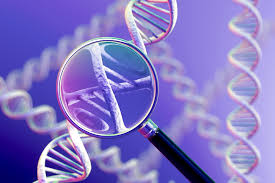 Fertility Institute of Hawaii Discusses the Use of PGS & PGD Testing, as Featured on Hawaii News Now
Fertility Institute of Hawaii Discusses the Use of PGS & PGD Testing, as Featured on Hawaii News Now
Couples who choose to undergo in vitro fertilization (IVF) treatment at centers such as the Fertility Institute of Hawaii are now able to test their embryos for certain genetic conditions prior to having them transferred. These procedures, called preimplantation genetic diagnosis (PGD) and preimplantation genetic screening (PGS), may improve IVF outcomes and most importantly, give many couples peace of mind.
What is PGS?
The PGS process involves taking a small biopsy from an embryo, usually from the outer layer of cells which differentiate into the placenta. The biopsy sample is then analyzed for the number of chromosomes present, and the physician is informed about the status of the embryo prior to placing it back into a woman’s uterus. By preventing the transfer of embryos containing an abnormal number of chromosomes, PGS allows patients to choose the embryos most likely to implant and least likely to miscarry for transfer. PGS also gives patients information (if they choose to know) regarding the sex of embryos even before pregnancy occurs!
What is PGD?
The process of PGD involves testing an embryo for specific genetic diseases such as Cystic Fibrosis, Muscular Dystrophy, or Thalassemia, prior to transferring the embryo. This is normally done for patients who know that they are carriers for these specific diseases and therefore are at high risk for having children with these conditions. Testing for these diseases ahead of time can prevent the transfer of embryos with severe, often fatal, genetic disorders, or help parents prepare ahead of time for the care of a possibly sick child.
See the Full Story
To read the complete story, please visit: http://share.ntv.io/sponsored/pgs-and-pgd-pave-the-way-for-genetic-testing-in-fertility-treatment/?ntv_a=YBADArWMUAApwPA&clienttype=generic&mobilecgbypass